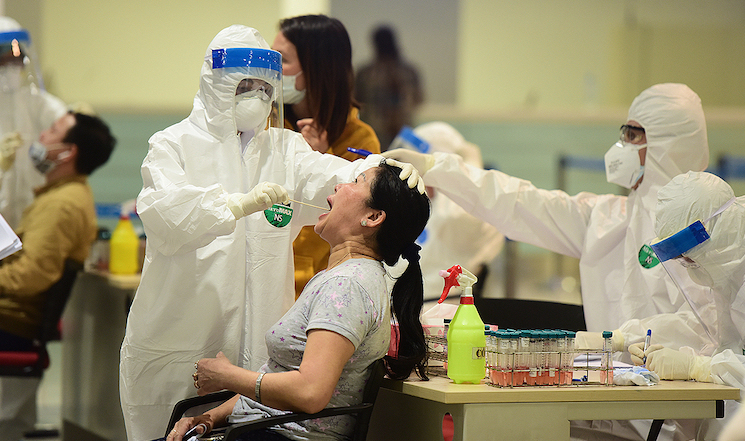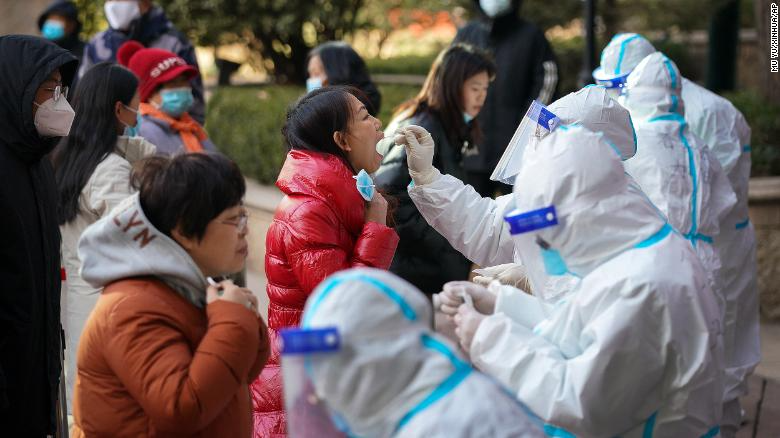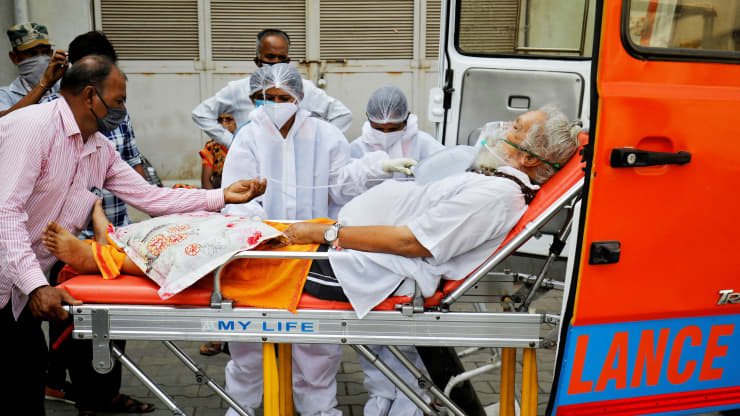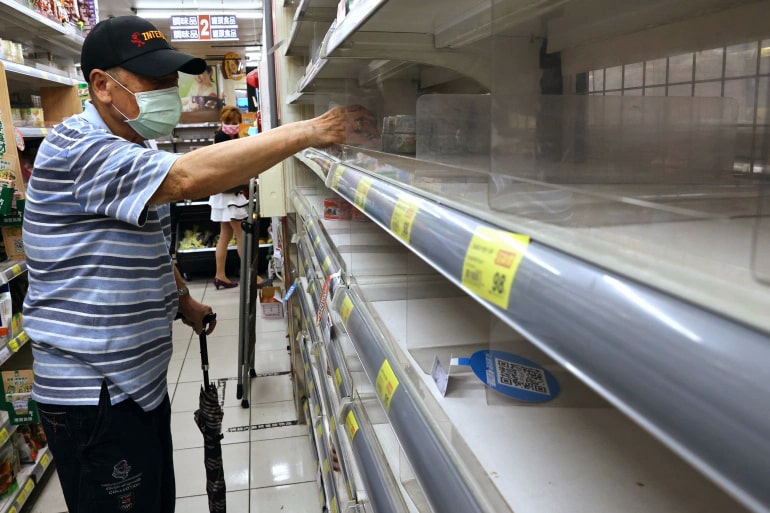World Covid-19 updates: Global coronavirus cases surpass 90 million
Global coronavirus cases surpass 90 million
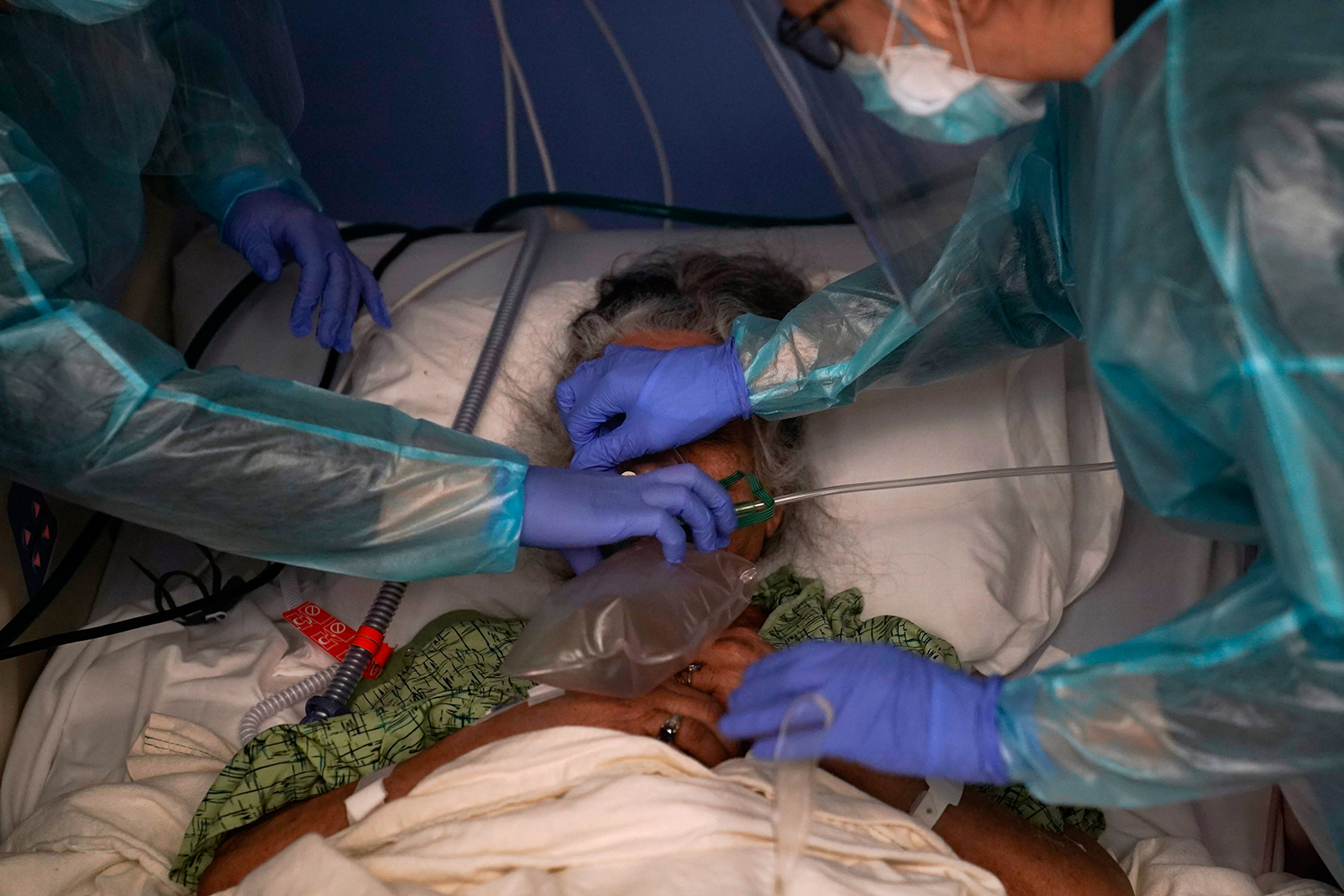 |
| Two nurses put a ventilator on a patient in a Covid-19 unit at St. Joseph Hospital in Orange, California on January 7. Photo: Jae C. Hong/AP |
Coronavirus infections have now surpassed 90 million confirmed cases around the world, as more countries braced for wider spread of more virulent strains of a disease that has now killed nearly 2 million worldwide, said SCMP.
The number of infections worldwide has doubled in just 10 weeks, according to a tally by Johns Hopkins University on Sunday.Covid-19 infections had hit 45 million as recently as late October.
The number of infections worldwide has doubled in just 10 weeks, according to a tally by Johns Hopkins University on Sunday. Covid-19 infections had hit 45 million as recently as late October.
The United States, now with more than 22.2 million infections, led the world with the highest number of infections recorded since the global pandemic began.
The number of US cases was more than double that of India, which has recorded nearly 10.5 million infections.
India announces national Covid-19 vaccination drive from January 16
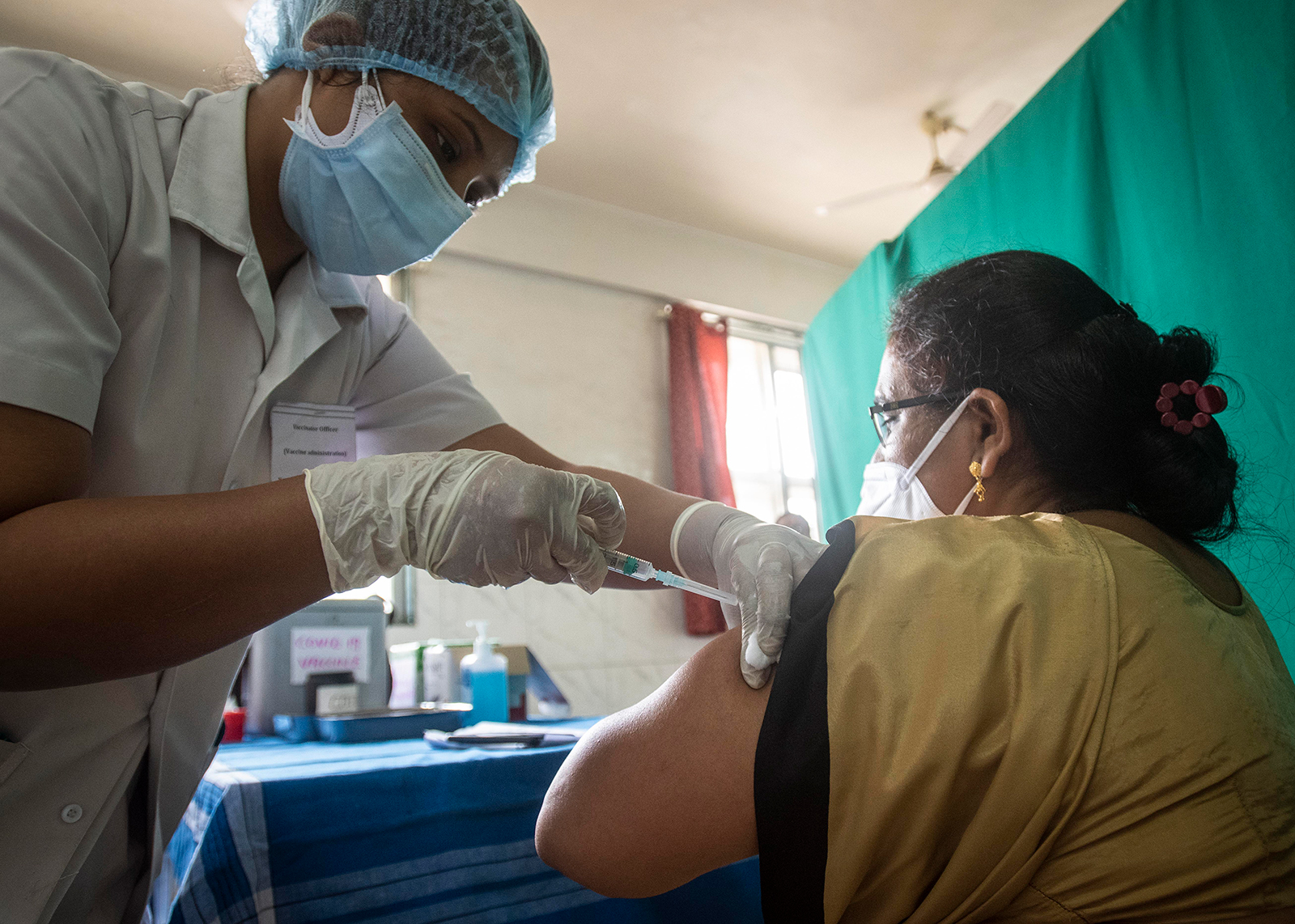 |
| India announces national Covid-19 vaccination drive from January 16. Photo: CNN |
India’s Ministry of Health and Family Welfare announced Saturday that the nationwide Covid-19 vaccination drive would start from January 16, 2021, according to CNN.
The country of 1.35 billion people is embarking on one of the world's most ambitious mass immunization programs ever undertaken, with plans to inoculate 300 million frontline workers and elderly and vulnerable people by August. Preparations have been months in the making.
On Saturday, India’s Prime Minister Narendra Modi chaired a high-level meeting to review the status of Covid-19 in the country along with the preparedness for the vaccination rollout, according to a statement from the Ministry of Health.
Phase one aims to vaccinate around 30 million healthcare workers and frontline workers.
Phase two will prioritize 270 million people 50 years of age and older, or those aged under 50 with co-morbidities.
The country conducted its third nationwide dry-run on Friday across 615 districts covering 4,895 session sites in 33 states and Union Territories.
More than 61,000 program managers, 200,000 vaccinators, and 370,000 other vaccination team members have been trained so far.
India on Saturday recorded 18,222 new Covid-19 cases and 228 deaths for the last 24 hours, bringing the nationwide total to 10,280,841 virus cases and 150,999 deaths, according to the Ministry of Health.
11 million locked down in China's Hebei province to prevent spread of new coronavirus outbreak
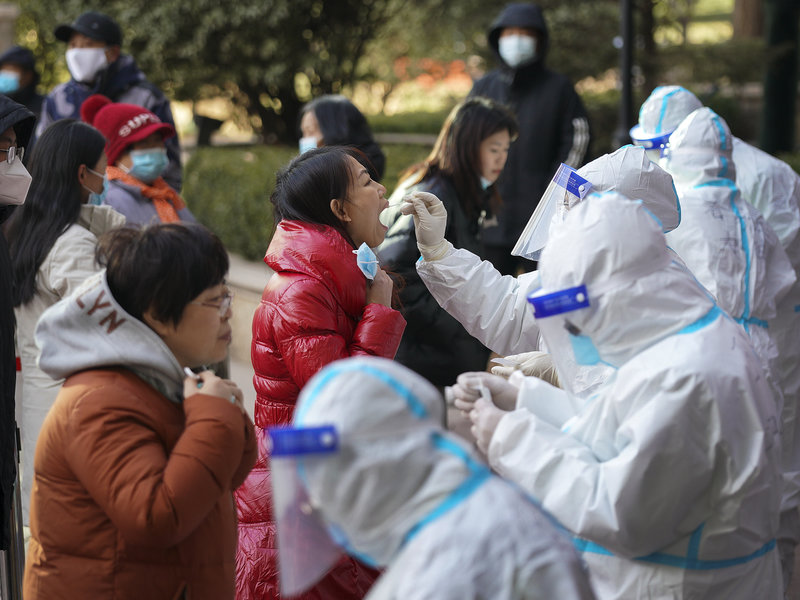 |
| Medical workers take swabs from residents in Shijiazhuang in north China's Hebei province on Jan. 6. Photo: Mu Yu/AP |
It took just 39 new coronavirus cases for health authorities in China to put almost 11 million people into lockdown in the city of Shijiazhuang.
Travel restrictions were put in place in the remainder of the region, which encircles China's capital Beijing and is home to some 76 million people.
By Saturday, Mayor Ma Yujun told a news conference that it had taken just three days to complete the first round of mass testing in Shijiazhuang, with 354 people found positive for the virus. A second round of testing is due to begin soon, he added.
Yan Xixin, a critical care director at the Second Hospital of Hebei Medical University, told the same news conference, "the risk of having more infections is still there."
This hard-and-fast approach is being echoed elsewhere in the Asia-Pacific region to fend off coronavirus flare-ups — including in Japan, Thailand and Australia — making measures to curb the virus spread in Europe and the United States appear almost sluggish.
Authorities put Hebei — known for textile, steel and pharmaceutical industries — into a "wartime mode" on Tuesday. This meant that government-coordinated action could begin, investigation teams to trace contacts could be set up and medical supplies distributed.
For residents of the provincial capital, Shijiazhuang, travel out of the city was barred and gatherings banned. Schools were closed down, while flights and trains were cancelled and the main bus terminal shut.
Late Friday, citizens were urged to stay home for at least seven days.
Germany tops 40,000 virus deaths as Merkel warns of 'hardest weeks'
 |
| Medical staff take care of a Covid-19 patient in the intensive care unit of a hospital in Ludwigsburg, Germany, on January 8. Photo: Sebastian Gollnow/picture alliance/Getty Images |
The total number of Germany's coronavirus deaths crossed 40,000 on Sunday, as Chancellor Angela Merkel warned that the coming weeks would be "the hardest" yet.
Germany recorded 465 deaths over the past 24 hours, the Robert Koch Institute for disease control said, raising the toll since the start of the pandemic to 40,343.
More than 1.9 million people have been infected so far, with almost 17,000 new cases added since Saturday.
In her weekly video message on Saturday, Merkel said the full impact of socialising over the Christmas and New Year's period was yet to show up in the statistics.
She warned Germans that "these next winter weeks will be the hardest phase of the pandemic" so far, with many doctors and medical staff working at their limits.
Germany fared better than many other European countries during the first Covid-19 wave in the spring but it has been hit hard by the second wave.
The nation of 83 million people, the bloc's most populous, has imposed another round of restrictions to limit social contacts and help hospitals cope with a surge in patients.
Around 2 million people in total have been vaccinated against coronavirus in the UK
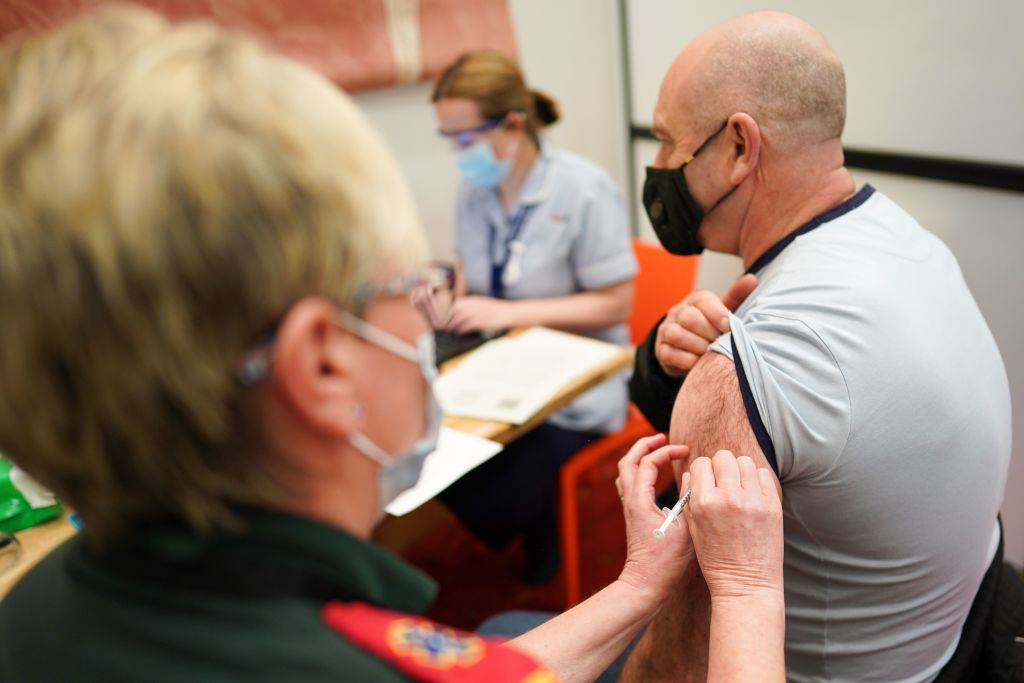 |
| A key worker from Sunderland receives the Pfizer BioNTech Covid-19 vaccine at the Life Science Centre at the International Centre for Life in Newcastle upon Tyne, northeast England, on January 9. Photo by Ian Forsyth/Pool/AFP via getty images. |
Around 2 million people in total have been vaccinated against coronavirus in the UK, Health Secretary Matt Hancock said Sunday. His words came on the same day England’s Chief Medical Officer warned the “situation has deteriorated further” since Monday, when the national alert level was raised to the highest level for the first time.
Speaking to Sky News on Sunday, Hancock said the health service administered more doses over the last seven days than in the whole of December. Exact figures will be published on Monday, but he said the country was “on course” to inoculate 200,000 people per day.
“We’ve now vaccinated around a third of the over-80s in this country,” he added, saying the “most vulnerable” will be vaccinated by the “middle of February.”
Hancock's comments came as Chief Medical Officer Chris Whitty described the rising numbers of cases, deaths, and hospital admissions as “the most dangerous situation anyone can remember” facing the National Health Service in some parts of the country.
Writing in The Sunday Times, Whitty points to the “new, more transmissible variant of this disease,” which “is spreading rapidly across the country and having tragic consequences.”
Both Hancock and Whitty stressed the importance of obeying lockdown restrictions.
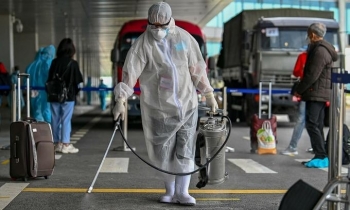 | Vietnam’s anti-pandemic measures remain unchanged Vietnam will continue to rectify places showing signs of loosening or neglecting medical supervision as Covid-19 situations. |
 | Low-income countries to receive COVAX vaccine this month COVID-19 vaccine deliveries under the COVAX facility coordinated by the World Health Organization to support lower-income countries could start this month, WHO immunization director Kate ... |
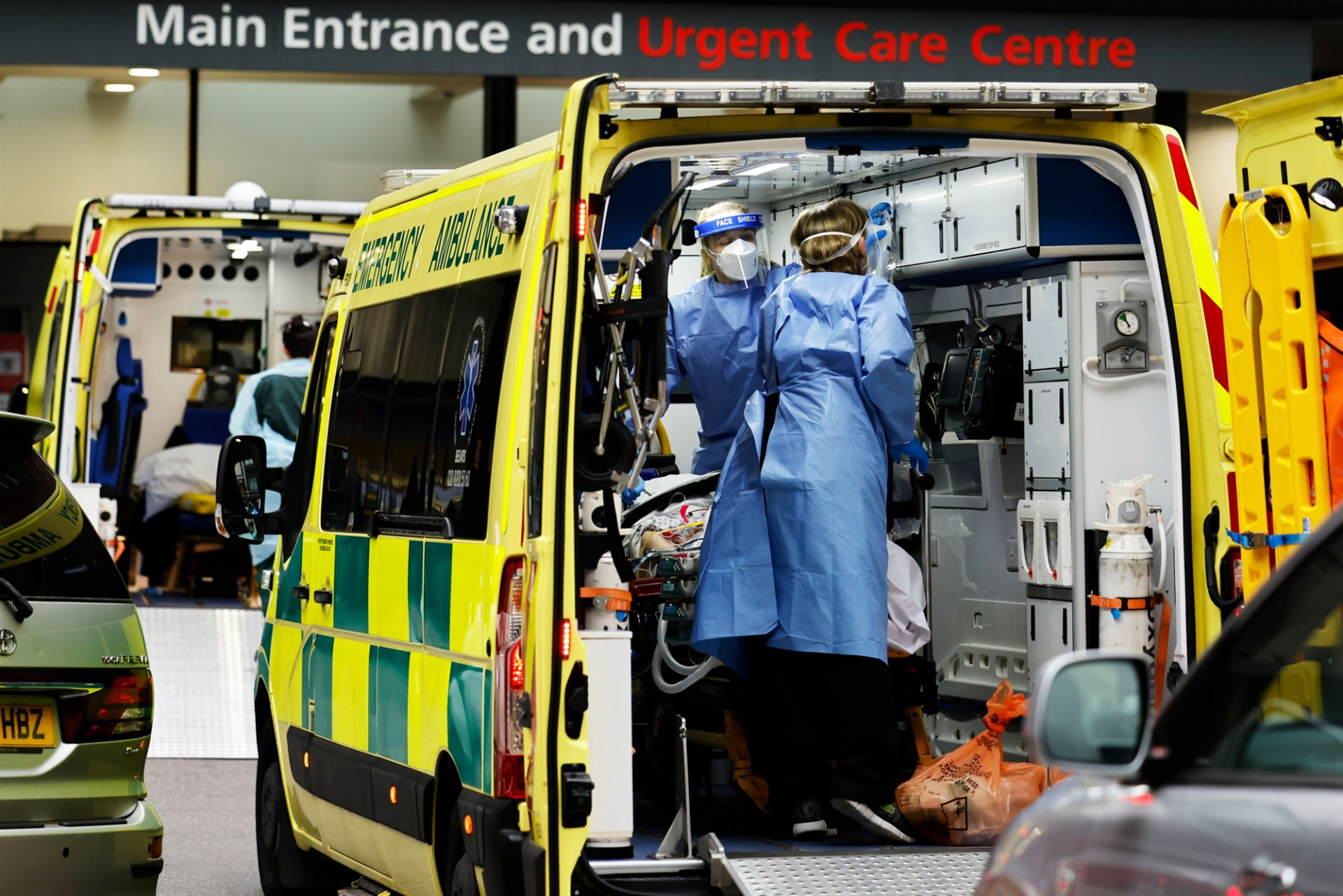 | WHO calls for more intensified measures after new variant of COVID-19 detected in U.K WHO suggests making the time between the first and second doses of the COVID-19 vaccine injection flexible as well as intensified coronavirus measures amidst the ... |
Recommended
 World
World
US, China Conclude Trade Talks with Positive Outcome
 World
World
Nifty, Sensex jumped more than 2% in opening as India-Pakistan tensions ease
 World
World
Easing of US-China Tariffs: Markets React Positively, Experts Remain Cautious
 World
World
India strikes back at terrorists with Operation Sindoor
 World
World
India sending Holy Relics of Lord Buddha to Vietnam a special gesture, has generated tremendous spiritual faith: Kiren Rijiju
 World
World
Why the India-US Sonobuoy Co-Production Agreement Matters
 World
World
Vietnam’s 50-year Reunification Celebration Garners Argentine Press’s Attention
 World
World


